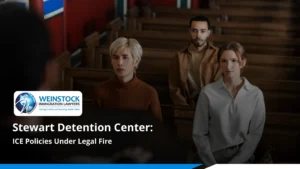Feds relax online education rules for international students amid coronavirus threat
A federal program overseeing international students in the U.S. said it will be flexible with its oversight requirements as the global coronavirus outbreak causes colleges to make classes remote.
U.S. Immigration and Customs Enforcement’s Student and Exchange Visitor Program (SEVP) sent participating colleges and universities the guidance on Monday. It expands schools’ options for using online education to keep these students on track in the event classes are offered remotely.
The guidance covers international students in academic and vocational programs, a critical part of the college student population in the U.S.
The number of online courses international students can take is generally restricted. The new guidance would help to ensure those students could stay in their classes as more institutions take programs online in an effort to stem the spread of the new virus and the respiratory illness it causes, COVID-19.
In the last few days, Harvard, Princeton, Columbia, Hofstra and Ohio State universities, along with the University of Washington and Smith and Amherst colleges, were among the growing number of institutions to move their classes online temporarily. More are expected to follow.
SEVP is asking schools to inform them if they change how they deliver courses to international student visa holders, and to include details on how the school plans to keep tabs on these students.
The program “is focused on ensuring that non-immigrant students are able to continue to make normal progress in a full course of study as required by federal regulations,” it said in a message to schools this week.
International students are an important prospect pool for colleges because they typically pay full tuition and help to raise institutions’ global profiles. Already, unwelcoming politics in the U.S. and strong competition from colleges in other countries have drawn them away from domestic institutions.
Some observers are worried the current coronavirus outbreak, which has closed college admissions testing centers in China and disrupted travel globally, could limit their options to attend U.S. institutions. Around one-third of international students in the U.S. hail from China.
Schools must notify SEVP of the changes within 10 days of implementing them. The program will update the guidance as necessary.
Other federal agencies have been loosening rules for how colleges can use remote instruction.
Last week, the U.S. Department of Education expanded options for colleges to use distance learning technologies if their classes cannot meet due to the coronavirus — so long as instructors maintain sufficient contact with students. Its guidance lets colleges make such changes without going through the department’s typical approval process, and it lets accreditors waive certain requirements.
Source: Law360 and Education Dive
Related posts

Stewart Detention Center Lawsuits Challenge ICE Policies in Georgia Federal Courts
Summary The Stewart Detention Center in Lumpkin, Georgia, is at the center of ongoing legal challenges to ICE’s detention practices. Stewart is one of the

Immigration Bond Hearings in Georgia: What ICE Detainees and Families Need to Know
Summary Families often feel overwhelmed when a loved one is detained by ICE. Common questions include whether the detainee can be released, and what a bond of hearing

Habeas Corpus Victory: Karen Weinstock Wins Bond Hearing Rights for ICE Detainees in Georgia
Summary A federal judge in Georgia has restored the right to bond hearings for immigrants detained by ICE within the U.S. Immigration attorney Karen Weinstock
